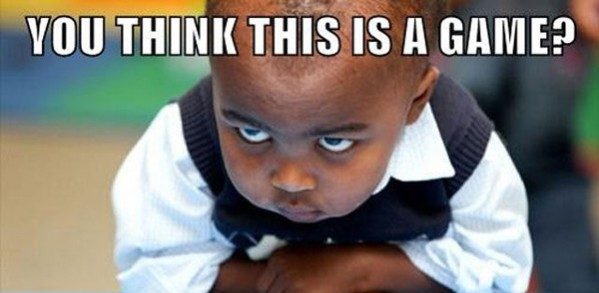[GUEST POST] Gamification is Not Dangerous

Mark Schreiber
Guest Writer
Disclaimer: Guest posts represent the diversity of opinion within the world of gamification, and the views and opinions expressed in guest articles are those of the author.
As a novelist I’ve always been intrigued by the idea that art and entertainment can effect changes in behavior. It’s a belief that’s been around for centuries. For example, the Puritans opposed dancing because they believed it would cause fornication. The latest incarnations include rap music, violent video games and online porn.
With the rapid grown of gamification it too, no doubt, will soon come under attack. Critics and lawyers and government officials will claim a teen’s suicide was caused by a lowering of his status level, or a homicide resulted from a dispute over virtual rewards.

So I’ve decided to make a pre-emptive strike against this ill-conceived accusation, resulting from faulty logic, emotional outrage rather than scientific research, an understandable desire to see someone punished for tragedies, and a less laudable attempt to pick big pockets with sympathetic juries.
At a very low level, cultural content certainly does influence behavior. Books and movies make us laugh or cry. Advertisements can influence us to drink a particular beer or buy a particular car. But these are things we are inclined to do anyway, that are consistent with our natures. It’s something else entirely to claim a non-violent man is driven to rape because he watches porn, or a well-adjusted urban youth kills a cop because of a song, or a driver hits pedestrians because of a racing game.
The faulty logic is equating correlation with cause, as the Nobel Prize economist Daniel Kahneman points out in his book Thinking Fast and Slow. Our brains are hardwired to make associations and see patterns, even when they don’t exist. The constellations are an example of this. We then tell ourselves stories to explain these associations, unaware that those relationships are our own creation and not a description of reality.
Even when victims or perpetrators name a particular book or film or song or game as the reason for their act, they are unaware of the deeper reasons that led them to act. The process is similar to a couple who break up over whose turn it is to wash the dishes, or some other trifle. There wasn’t one cause but a chain of causes built up over time. The final argument was at most a proximate cause.
In 1774 a young German writer wrote a short novel about a sensitive German youth who kills himself because the woman he loves marries someone else. The Sorrows of Young Werther, by Germany’s greatest writer, Goethe, was a bestseller in its time and spawned a number of copycat suicides. Now obviously the particulars of the suicide were influenced by the book. But what of all the millions who read the book and didn’t kill themselves? Maybe the poor victims were doomed by chemical imbalances, just as the fictional Werther was doomed by his romantic instability, not by his unrequited love.
Even in instances where people are driven to action by dogmatic works, such as when suicide bombers are influenced by controversial interpretations of the Quran, it is not the cultural content that makes them act but pressure from authority figures.
In fact what has struck me, admittedly sadly, over the years, is the opposite observation: the inability of art and entertainment to fundamentally change people’s behavior. How many hateful individuals fail to be improved by sermons on compassion? My favorite example is the cop show genre from the 70’s. This was a time of endemic illegal drug use in America, but you never saw a respectable citizen smoking pot on TV. And the drug dealers were always villains. Not anti-heroes, but stone-faced cruel monsters who always lost their freedom or their lives by episode’s end, while drug users were invariably portrayed as pathetic slaves to their addiction.
If you bought into the premise that creative content can cause behavior, you would conclude that children raised on these programs would never take or sell drugs. But the opposite it true. Why?
I think it’s because upbringing, peer-pressure, authority figures, community ethos, temperament, habit and brain chemistry are the real factors that drive behavior. Art and entertainment come late to the dance and act like a strobe light, fixing our position out of context. But the beat that moves us lies deeper.
Published on 31 October, 2012
This post was contributed by Mark Schreiber, guest writer
Mark Schreiber is a full time novelist since graduating high school at the age of 15. He also engineered his sister’s bestselling writing career and started and run several businesses, including a solo medical practice. He’s currently interested in technological entrepreneurship in Singapore and Silicon Valley.
Mark Schreiber is a full time novelist since graduating high school at the age of 15. He also engineered his sister’s bestselling writing career and started and run several businesses, including a solo medical practice. He’s currently interested in technological entrepreneurship in Singapore and Silicon Valley.
